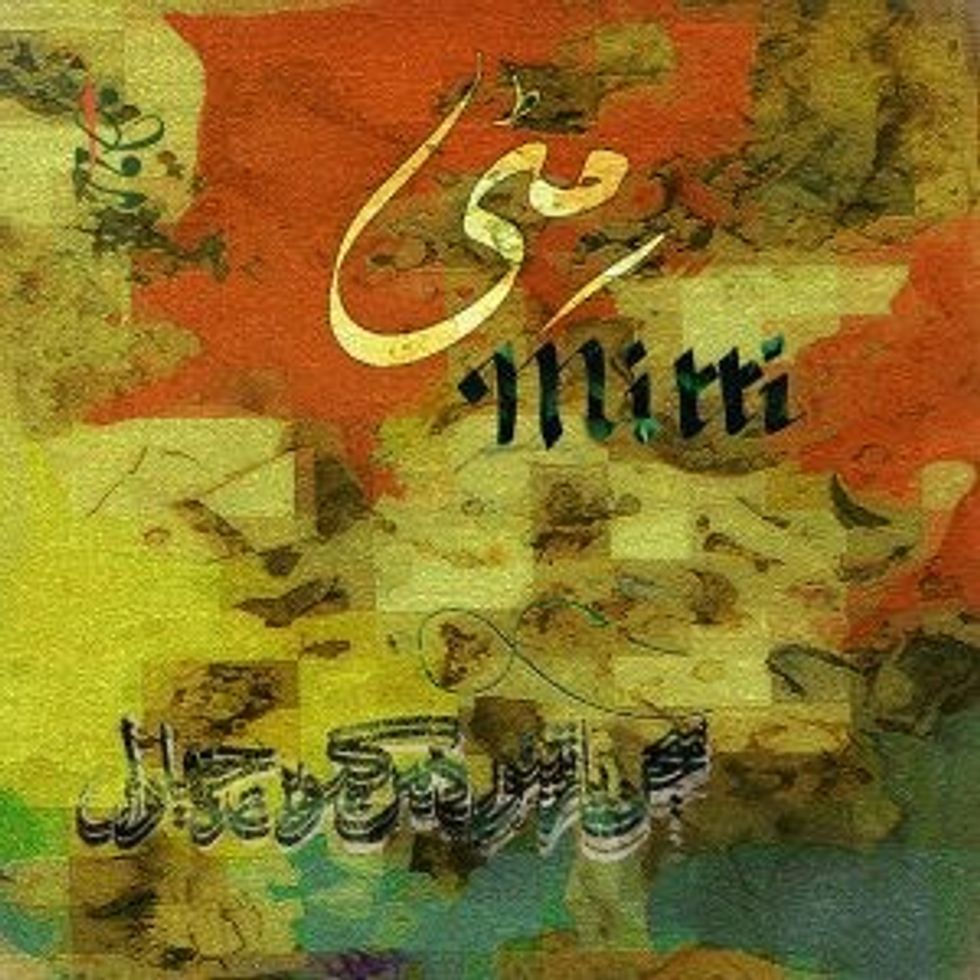PAKISTANI MUSICIAN MAHAM SUHAIL EXPLAINS THE PHILOSOPHY BEHIND HER DEBUT ALBUM
by ASJAD NAZIR
SINGER, composer and producer Maham Suhail says her debut album Mitti has her heart, blood, tears and sweat in it.
The talented Pakistani has also put in her own money into the collection of songs, which she believes has enabled her to evolve as a musician and human since her recording journey began in 2016.
The result is seven original songs in seven languages injected with diverse influences and rooted in global folk tradition, including her stunning 2020 spiritual hit Sajjan Yaar. One of the best-kept secrets
in Pakistan has been connected to music from a young age and is putting the finishing touches to what will be one of the most original albums of 2021.
Eastern Eye caught up with Maham Suhail to discuss her new album, the journey she has been on, inspirations and her deep connection to music.
What led towards your debut album Mitti?
My inspirations during my travels and the drive to create beautiful music by bringing together cultures, human beings and musical styles from around the world led to the creation of Mitti. I am a hippie activist at heart and my goal is to help imagine and build a better world, through whatever I do. Music and writing are my strongest mediums for this, other than daily acts of kindness. Mitti is like a world peace statement made through world music.
Tell us about the album?
Mitti was created with the intention of celebrating world music overlaps, rooted in my south Asian indigenous or folk music forms. There are seven songs in a total of seven languages, which were produced across Pakistan, India, Spain, Finland and Nashville. The album’s first audio recording took place in India in 2016, in two Kolkata studios. Five of the songs have completed production,
while two are still in process. I am exploring my own stories as
a travelling woman artist with makeshift homes, and wear the hats of vocalist, composer and producer/engineer, in the production process of Mitti.
Who are you hoping will connect with the songs?
Well, I’m not just hoping, but am very grateful to actually seeing this happening already. I have unexpectedly found people telling me how they are hooked onto Sajjan Yaar and listening to it on a loop at places I visit. People from diverse cultural backgrounds, including those who don’t understand the Siraiki lyrics, have connected with the song so deeply. I receive feedback on my socials and sometimes directly. So yes, Sajjan Yaar has been connecting with everyone from all backgrounds.
Why did you call the album Mitti?
In Urdu, Mitti means soil. The title arises from my innate yearning to help connect with one’s cultural identity, while being harmonious and inclusive of any ‘other’ entities. These extensions of human identity mix together as intercultural music forms, ancient, contemporary and global, just as soil is composed of diverse life forms, fading and blooming. Mitti binds, connects and liberates us, just as a seed breaks the ground to grow into a towering, expansive tree.
You say all the songs on Mitti are close to you. Did you learn anything new while recording the album?
I am always on the lookout to learn something new in whatever I do in life. In this case, I am still learning – the audio production is still ongoing for one of the two unfinished songs. My own roles from song to song have increased and been polished over the years.
Tell us more about that journey?
I started from being a complete newbie to handling the recording and engineering processes, microphoning and recording a full drumkit single-handedly in my Berklee College studio for one of the songs. I also did my own vocal recording on another song, wrote sheet music for my Spanish production of Dil Mi Ravad and have been extensively editing recordings on pro tools. I have also gained more confidence in dealing with international music professionals and communicating ideas in better terms as a producer and artist.
How are you able to generate so much emotion in your voice?
It’s the school of hard knocks to be honest, as much as this may sound cliched. But if you don’t keep challenging yourself and escape from self-made chains of comfort zones from time to time, you won’t really raise your vibration as a person. My goal, since a young age, was to grow in self-awareness, to be original in thought, and challenge widely accepted social norms that never made sense to me.
What do you mean?
Being a rebel is never easy and leads to severe misjudgement many times, from the apparently ‘closest’ people around. Learning to be stubborn in the face of all that, and speak my truth no matter what, was a painful journey while growing up. My heart broke a million times, but then the seed must break the soil (mitti) to grow into a strong tree. My voice is that blooming tree.
There is a heavy devotional message in Sajjan Yaar. How spiritual are you?
This is a question for which I have no measuring device to answer precisely. I seek deeper connection with the creator (Allah) and hence with myself and wish to live this life to my full human potential, and help others see the beauty of this universally necessary goal. I am no more spiritual than you – it is just that the destinations keep shifting as the journey proceeds.
What are your future plans?
My future plans, inshallah, include producing more music and videos for singles from Mitti. I look forward to travelling, so I can perform collaborate and record as much as possible, both nationally and internationally. I also anticipate getting my foot in the door as a composer and producer for other music projects.
What inspires you as an artist?
Nature is my first inspiration, so is travel. Then, people's stories are a big one too, especially unexpected conversations with strangers. These stories could be shared in person verbally, or as art in any form – visual, textual or musical narratives.
Why do you love music?
Who is to say why I love music? I notice that by instinct, sound is the first sensory stimulus I pick when I enter a new environment, indoors or outdoors. My cognitive and intuitive instincts seem to process sounds and music more than the other mediums I continue to practice and share with the world, vis-a-vis writing and digital prints.





